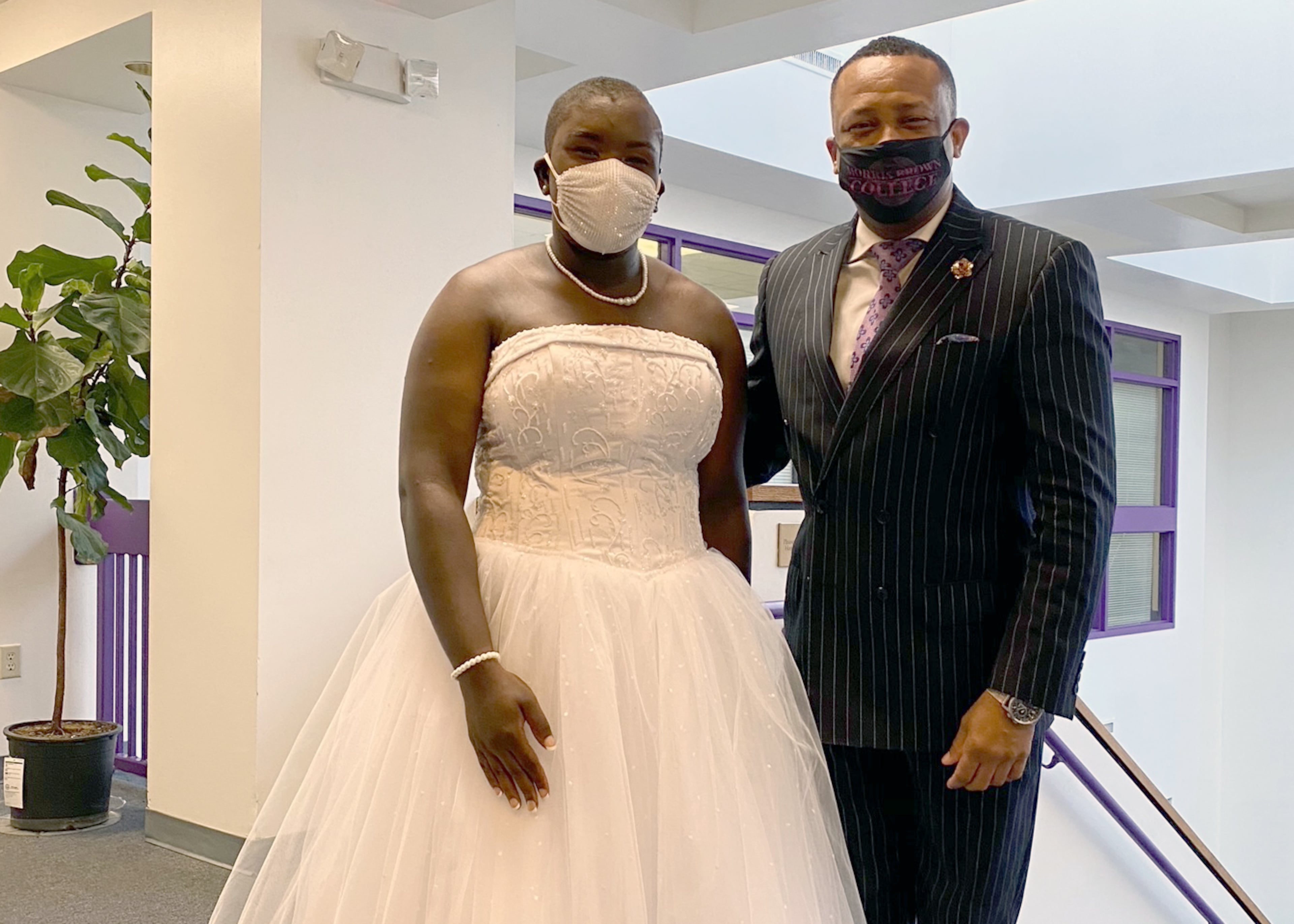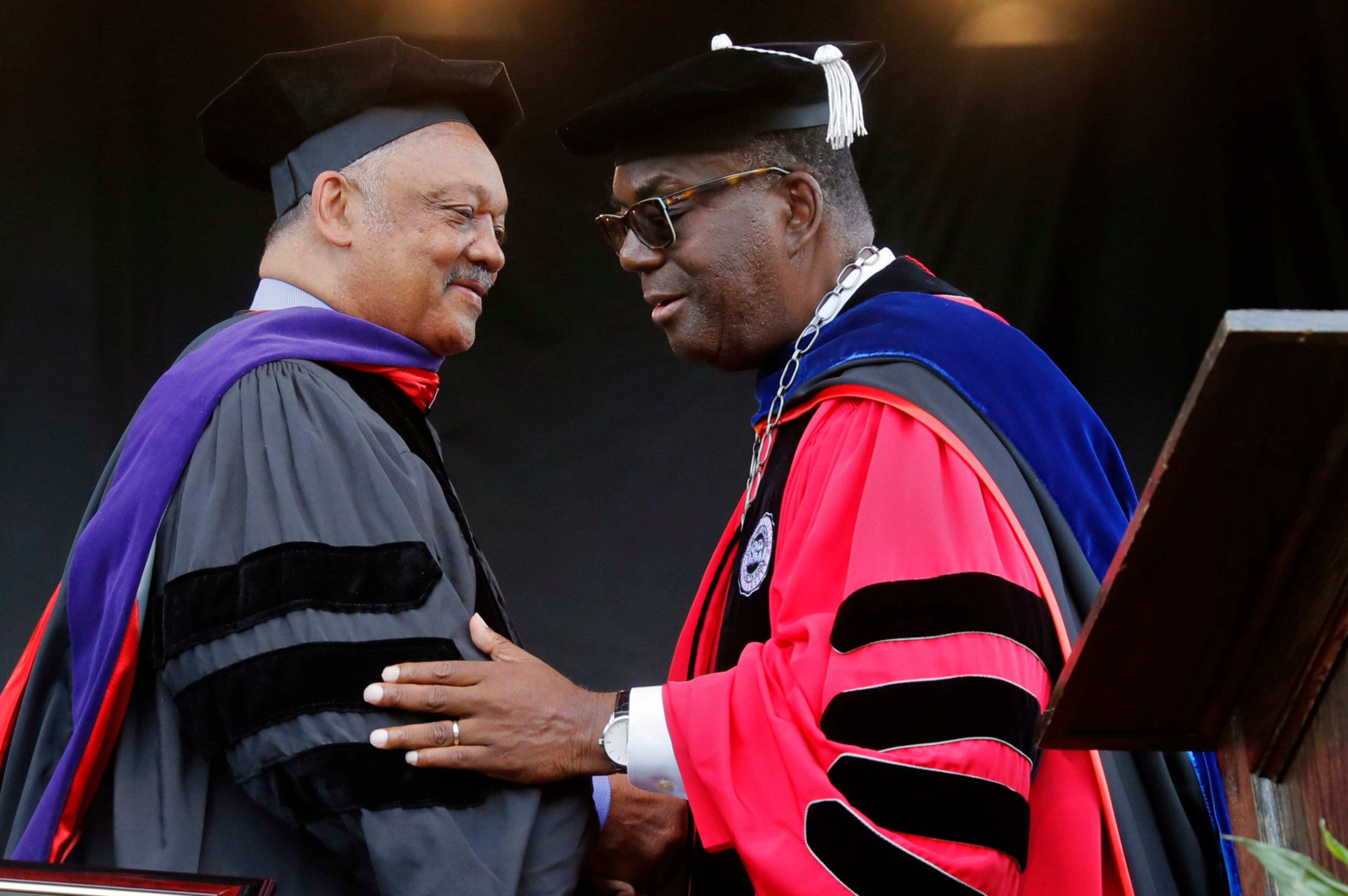Morris Brown and Paine colleges seek new path after financial troubles
Two small, private, historically Black Georgia colleges with similar histories and financial problems that threatened their survival are seeking to start a new era of quality education and sound leadership.
Paine College, located in Augusta, late last month had its accreditation application approved by the Virginia-based Transnational Association of Christian Colleges and Schools. Students attending a school without accreditation cannot receive federal financial aid.
Morris Brown College, near downtown Atlanta, is seeking its accreditation through the same agency. TRACS plans to do a site visit in January.
The Decatur-based Southern Association of Colleges and Schools Commission on Colleges stripped Morris Brown’s accreditation in 2002 and pulled Paine’s in 2016 after years of financial issues and mismanagement.
In many respects, both colleges are starting over, said TRACS president Tim Eaton. Morris Brown has a new board of governors, a new president and its enrollment, which peaked at 2,700, has consistently been just a few dozen students in recent years. Paine, which last year had 448 students, also has many new leaders and has restructured its finances. Paine had about 900 students when SACS put the school on probation in 2014.

Morris Brown had a fund balance of about $1.9 million in 2018, the following year’s federal tax records show. The college was in the red the prior year. Paine, which court records show had a $10 million shortfall in 2014, had a $3 million operating budget surplus over the last five years, Eaton said.
Federal statistics show college enrollment declined nationally by about 100,000 students to about 19.6 million in 2018, the most recent year available. Some reports show a national decrease this fall, which education leaders attribute to the coronavirus pandemic. Experts have raised concerns about the future of smaller, private liberal arts schools like these because of the national decline.
Student leaders have heard the questions about why enroll at a school with accreditation issues. They and others say education was not the problem. It was financial. Morris Brown student government association president Jacqueline Flournoy has offered campus tours. Things have changed, they say.
“I need y’all to do your research first before trying to put down Morris Brown,” Flournoy said she tells the skeptics and the curious.
Morris Brown suffered from ballooning debt. To keep the college financially afloat, some administrators committed fraud, including obtaining loans on behalf of students who were unaware that the college had applied for financial aid in their names. One former president pleaded guilty to embezzlement and was sentenced in 2007 to five years’ probation, including a year of home confinement.
Paine’s net assets were in the red four consecutive years, SACS said. Paine supporters have said there were poor financial decisions, such as the short-lived attempt to start a football team.
Both schools were founded in the late 19th century to educate Black students. Morris Brown was founded by the Georgia Conference of the African Methodist Episcopal Church in 1881. It was the first historically Black college in Georgia founded by African Americans. Paine was founded in 1882 by Methodist church leaders, Black and white, with donations — including pennies from former slaves.
Leaders of both colleges have been encouraging each other through their accreditation bids. DeKalb County Chief Executive Officer Michael Thurmond, a Paine alum, said he’s spoken to some Morris Brown graduates about supporting their college through the accreditation process.
“You have to tip your hat to Morris Brown. They did not give up. They kept the faith,” said Thurmond, Paine’s board chair-elect.

Paine and SACS battled through the courts when the agency first put the college on probation in 2014. The legal dispute is unresolved. Amid that fight, the college decided to seek its accreditation through TRACS.
TRACS reviews several federal requirements and those of its own during the accreditation process. They include the governing board structure, faculty educational credentials, health and safety rules, student privacy management, transfer credit policy and financial records. The application process typically takes at least two years, if approved.
Cheryl Evans Jones, who became Paine’s president last year, said the college cut spending with decisions such as eliminating academic programs, like chemistry, with low enrollments.
TRACS, which has 90 member colleges and universities nationwide, visited Paine in July. LaShawn Doolittle, a junior, was part of a group of students who answered their questions. After filing for bankruptcy, Doolittle, 52, an Augusta resident, decided she needed to enhance her resume and applied to Paine. The school in 2017 gave her son, Savon, a baseball scholarship.
“They took a chance on me and I didn’t want to disappoint them,” said Doolittle, who cried joyfully when the accreditation was approved.

Paine must give a progress report in February, Eaton said.
Jones said the college is exploring ideas to strengthen its academic programming and finances, such as offering more distance education, particularly in cybersecurity.

Flournoy, 21, the student government president, was crowned Miss Morris Brown during homecoming weekend in October. She dreamed of going to the college since she was 9. Her mother and grandfather are some of the family members who are graduates. She successfully recruited her best friend, who later joined the military.
Morris Brown President Kevin James said the key is to show financial stability. The school, which currently has about 55 students, set a $500,000 fundraising goal during its October homecoming to put in its bank account. Officials said they raised $550,000.
The tough financial lessons of the past have been learned, leaders at both colleges say.
“It’s nothing like a near-death experience to clear the mind,” said Thurmond.




